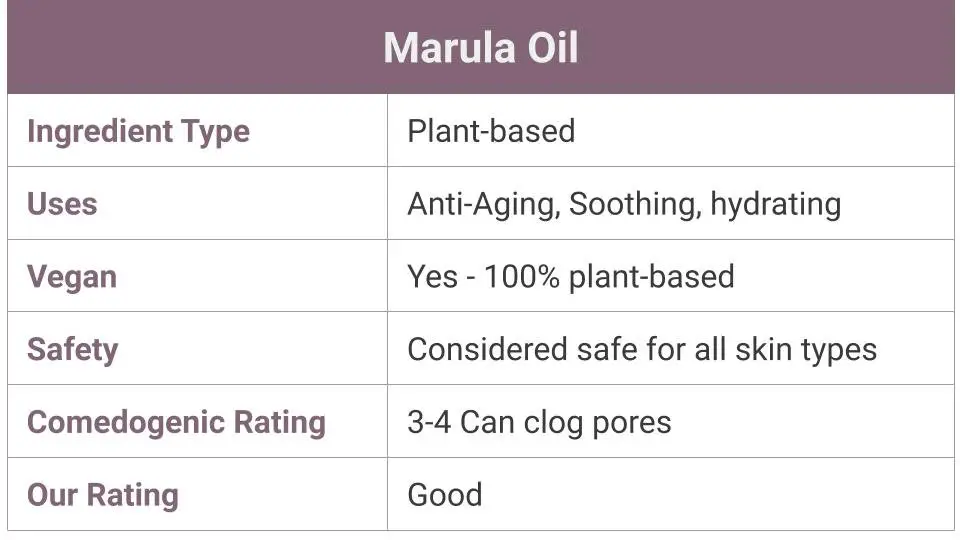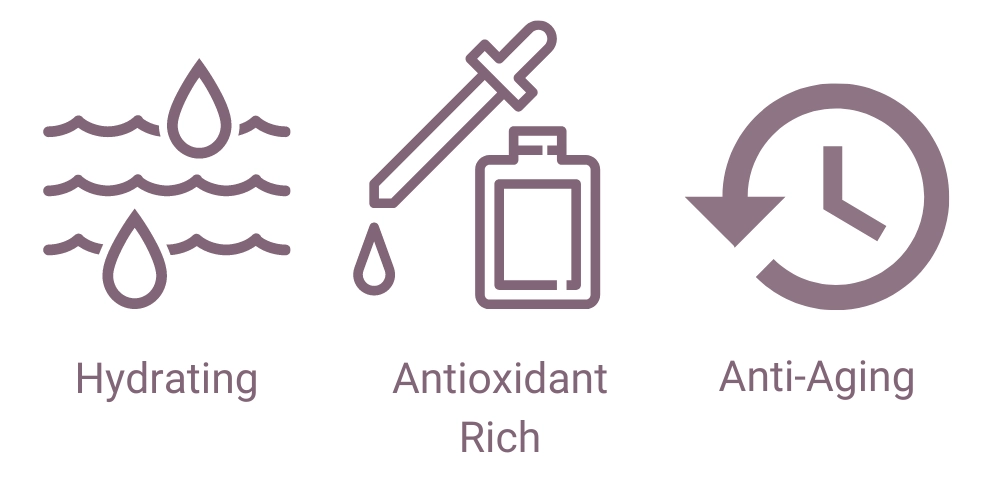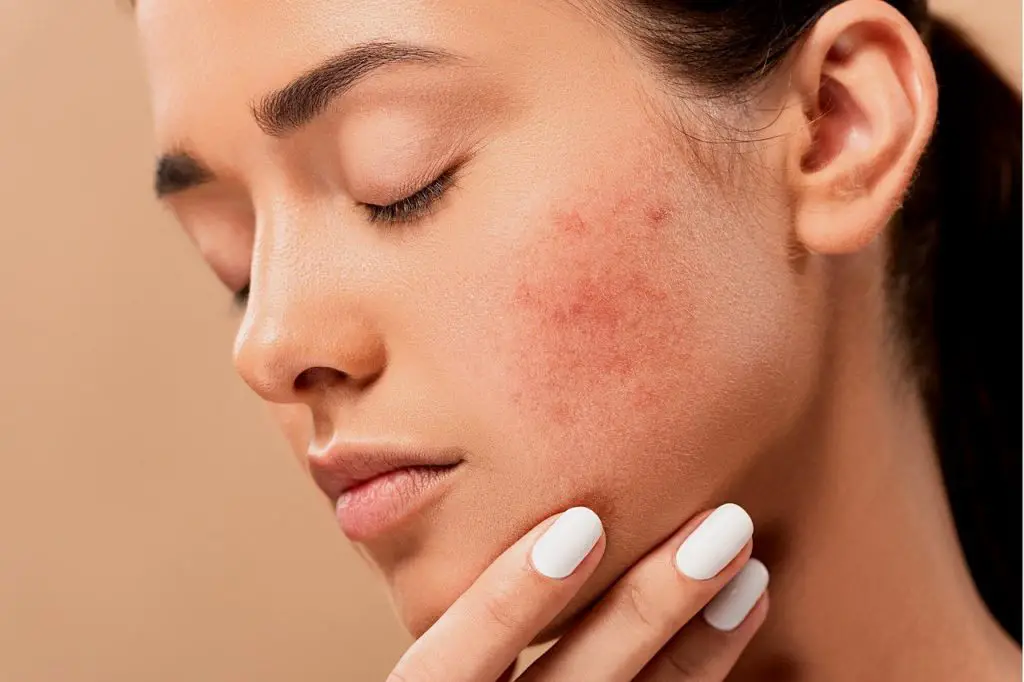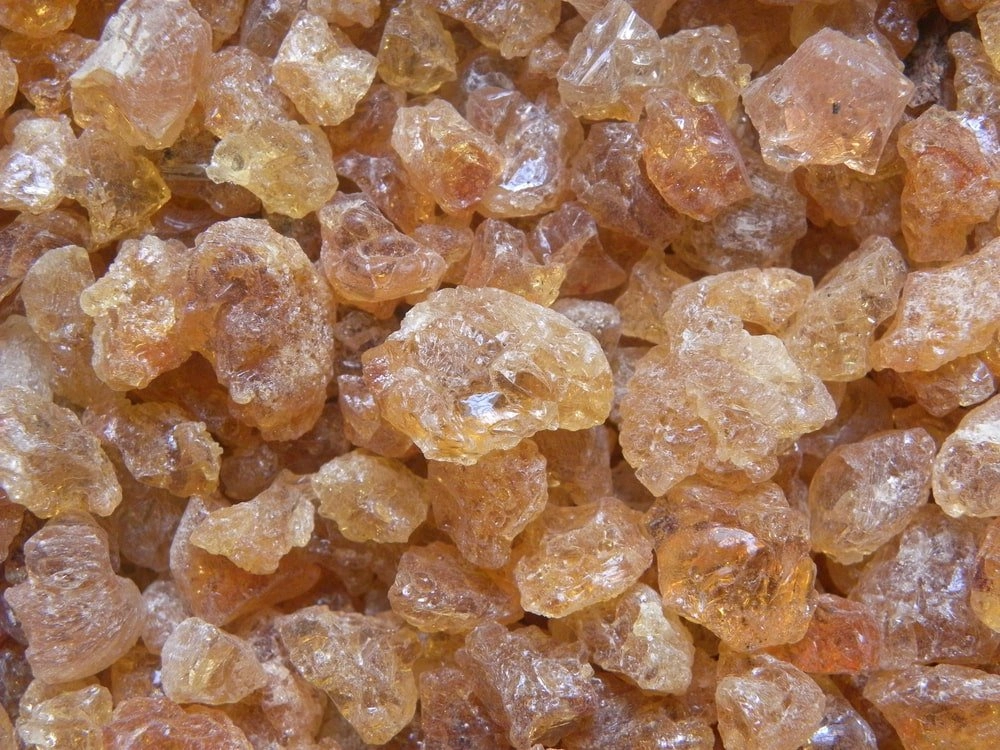There are lots of people who are looking for ways to improve their skincare routine. When a massive increase in organic and natural skincare products on the market, you might be wondering which oil will work best for you.
This post may contain affiliate links. Read the full disclosure here
One fun skincare option to try is marula oil. It’s a bit newer in the skincare space but the popularity is catching on. This fatty acid, rich oil offers a nice range of benefits for the skin. Learn more about marula oil uses, benefits, and considerations.
What is Marula Oil?
Before deciding to use this oil for the first time, it is important to take a closer look at its ingredients. A few of the key ingredients that are present in marula oil for skin include:
- This oil has a wide variety of antioxidants, including tocopherol and tocotrienols, which are important for scavenging free radicals throughout the body, preventing cellular damage
- There are also a number of fatty acids, include omega 6 and omega 9 fatty acids, which are important for moisturizing and nourishing the skin
- Furthermore, the presence of phenolic compounds and flavonoids also play important roles in preserving the integrity of marula oil
- In addition, marula oil is also high in protein, which makes it easier for the skin to absorb it
Perhaps the most unique thing about marula oil is its high oleic acid content. In fact, marula oil is mostly oleic acid, usually around 70-78%!
These are the main ingredients that are present in marula oil. Make sure that you take a close look at the exact brand or product you are going to use. That way, you will familiarize yourself with any ingredients that look unfamiliar to you.

Where Does Marula Oil for Skin Come From?
This oil is made from a fruit of a tree called Sclerocarya Birrea. The tree itself is native to Southern Africa. Even though the tree was once hard to find and was almost exclusively found in this part of the world, it is now cultivated all over the place. Therefore, it is much easier to find marula oil than it once was.
In the past, many parts of this tree were used in traditional medicines, food, and a wide variety of other dishes. Every fruit that comes from this tree contains a large, hard, brown nut. Inside of the nut is white kernels. The oil itself Is made from the kernel. If there are not enough kernels, it is also possible to extract the oil from the outer husk of the fruit.
When the oil is extracted from its fruit, it goes through a purification process before it reaches the market. As oil has become more popular, many people are discovering a wide variety of benefits, particularly when it comes to their skincare routines. There are several benefits that everyone should note.
Marula Oil for Skin Benefits
When it comes to skincare routines, marula oil is still relatively new, but it’s catching on! Pure marula oil offers a range of benefits on its own, but it can be combined with other ingredients too. It can be an effective product in the treatment of hair, skin, and nails. A few of the main benefits of marula oil for the skin include:

Reduce Irritation
In general, many people like marula oil because it can help reduce skin irritation. Some of the most common signs of irritation include itchiness, scratchiness, and redness.
Even though marula oil alone may not be effective for certain chronic skin conditions, such as psoriasis, it is possible that marula oil can be used to reduce generalized irritation.
Anti-Aging
Another major benefit of marula oil is that it also possesses some anti-aging properties. This oil is relatively high in amino acids, such as glutamic acid and L-arginine. These amino acids are able to increase the hydration of the skin, reducing the rate at which the skin ages.
Anyone who is tired of seeing age spots or fine lines in their skin may want to give marula oil a try. It might be able to slow the aging process.
Moisturizing Properties
In addition, many people also like to use marula oil because it can moisturize the skin effectively. There are a number of important fatty acids that are present in marula oil. A few examples include stearic acid, oleic acid, and palmitic acid.
All of these fatty acids have emollient properties. As a result, they can take care of dry skin. Individuals who are tired of seeing their skin dry out and start to crack may want to give marula oil a try.
Benefits for the Hair
A lot of people are also concerned about the overall health of their hair. In this scenario, marula oil can be used to moisturize and nourish the hair from the follicle all the way up to the tip. Furthermore, marula oil is able to do this without making the hair feel greasy. Because it is able to moisturize and hydrate the hair, marula oil can prevent moisture loss. Therefore, this will prevent the hair from becoming frizzy or brittle.
Care for the Nails
Many people also like to use marula oil as part of their beauty routines because it can protect the cuticles and nail beds. For example, many people have noticed that they can use marula oil to protect the surfaces of the nails and prevent hangnails.
Increase the Skin’s Overall Glow
Finally, many companies have been making marula oil with added exfoliants. This means that people can use marula oil products to encourage cell turnover on the surface of the skin. By removing dead skin cells from the surface, it is possible to increase the glow of the skin, causing the skin to look more elastic and shiny hair without making it feel crazy. This is one of the main benefits of marula oil.
These are just a few of the many benefits of marula oil. It is important for everyone to take a look at all of the ingredients present and their skincare products. Some of the products have marula oil along with other ingredients that could change or alter the benefits slightly.
Will Marula Oil Clog the Pores?
Marula oil has a comedogenic rating of 3-4, which means that it might clog pores. While the comedogenic rating system isn’t perfect, it’s a good rule of thumb to consider with skincare products, especially those for the face.
If you struggle with clogged pores, you may want to opt for lighter face oil options such as rosehip oil. In fact, we put together a detailed comparison of marula oil vs. rosehip oil if you want to learn more.
If you do use marula oil, start with small areas and take note of how your skin reacts.

Marula Oil for Acne: Is it Bad for Oily Skin?
Marula oil is not a good option for acne or blemish-prone skin. As noted above, it has a comedogenic rating of 3-4, which is not ideal if you have acne. In addition, it has a very high oleic acid content.
Those struggling with acne tend to high a surplus of oleic acid in their skin (it’s present in sebum) so the general thought is that more of that isn’t a good thing. With this in mind, you’ll likely want to stay away from marula oil and other oils high in oleic acid.
On the positive side, marula oil has antimicrobial properties which can help fight against the formation of pimples.
It’s not a concern if you have dry skin or don’t have acne, but for those that do, marula oil isn’t the best option.
What Does Marula Oil Smell Like?
Some people are concerned about the smell of marula oil. The good news is that marula oil has a relatively pleasant smell. Furthermore, a lot of companies actually use marula oil as the bass note for a wide variety of perfumes and body lotion. In general, marula oil it’s going to have a fruity, floral scent. Furthermore, people might notice a nutty, warm undertone on the back end. Therefore, a lot of people actually like the smell of marula oil.
The exact smell of marula oil may vary depending on the company that makes it. For example, some companies like to combine marula oil with a variety of other ingredients. This can alter the smell slightly.
It’s safe to say, if a product has a very strong, bad, or pungent odor, the product may have gone bad. Marula oil has a fairly long shelf-life but it doesn’t last forever!
Are There Any Precautions To Using Marula Oil?
Because marula oil is still relatively new to the market, there is still research that is being done. As of now, there are no specific risks associated with using marula oil. At the same time, because of the nutty undertones of marula oil, it is important for anyone with a nut allergy to start low and go slow. Those who are allergic to marula oil may want to reach out to a trained medical professional to perform a patch test before they use marula oil for the first time.
As always, it is critical for everyone to avoid getting marula oil in their eyes. This can lead to some mild, general irritation and eye redness. Anyone who gets this product in their eyes should be sure to wash out their eyes thoroughly with water.
This is just a brief overview of some of the most important points when it comes to marula oil. This oil has the potential to dramatically improve someone’s overall skincare routines. Therefore, why not take a closer look at marula oil? It might be able to help you improve the health of your skin.
Related Natural Oil Ingredients





